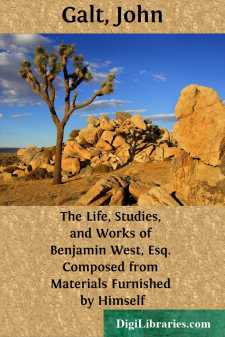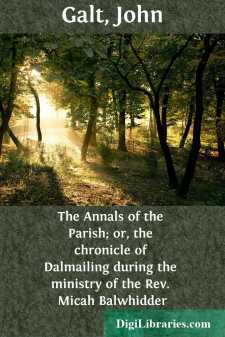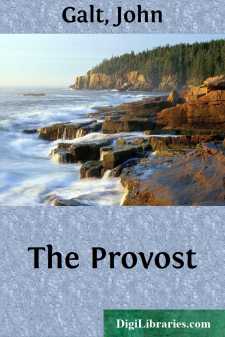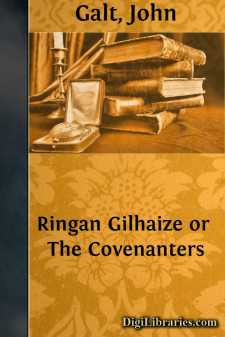Categories
- Antiques & Collectibles 13
- Architecture 36
- Art 48
- Bibles 22
- Biography & Autobiography 813
- Body, Mind & Spirit 138
- Business & Economics 28
- Children's Books 12
- Children's Fiction 9
- Computers 4
- Cooking 94
- Crafts & Hobbies 4
- Drama 346
- Education 46
- Family & Relationships 57
- Fiction 11821
- Games 19
- Gardening 17
- Health & Fitness 34
- History 1377
- House & Home 1
- Humor 147
- Juvenile Fiction 1873
- Juvenile Nonfiction 202
- Language Arts & Disciplines 88
- Law 16
- Literary Collections 686
- Literary Criticism 179
- Mathematics 13
- Medical 41
- Music 40
- Nature 179
- Non-Classifiable 1768
- Performing Arts 7
- Periodicals 1453
- Philosophy 64
- Photography 2
- Poetry 896
- Political Science 203
- Psychology 42
- Reference 154
- Religion 505
- Science 126
- Self-Help 81
- Social Science 81
- Sports & Recreation 34
- Study Aids 3
- Technology & Engineering 59
- Transportation 23
- Travel 463
- True Crime 29
The Life, Studies, and Works of Benjamin West, Esq. Composed from Materials Furnished by Himself
by: John Galt
Description:
Excerpt
The result of the Artist's experiment to discover the methods by which Titian produced his splendid colouring.--He returns to Rome.--Reflections suggested by inspecting the Egyptian Obelisk.--Considerations of the Author on the same subject; an anecdote of a Mohawk Indian who became an Actor at New York.--Anecdote of a Scottish Fanatic who arrived in Rome, to convert the Pope.--Sequel of the Adventure.--The Artist prepares to visit England.--Having completed his St. Jerome, after Corregio's famous picture, he is elected an Honorary Member of the Academy of Parma, and invited to Court.--He proceeds by the way of Genoa towards France.-- Reflections on the State of Italy.--Adventure on reaching the French frontiers.--State of Taste in France.From Florence the Artist proceeded to Bologna, and having staid some time there, carefully inspecting every work of celebrity to which he could obtain access, he went on to Venice, visiting in his route all the objects which Mengs had recommended to his attention. The style of Titian, which in breadth and clearness of colouring so much excels that of almost every other painter, was the peculiar characteristic of the Venetian school which interested him the most, and seemed to him, at first, involved in inexplicable mystery. He was never satisfied with the explanations which the Italian amateurs attempted to give him of what they called the internal light of that master's productions. Repeated experiments, however, enabled him, at last, to make the discovery himself. Indeed, he was from the first persuaded that it was chiefly owing to the peculiar genius of the Artist himself,--to an exquisite delicacy of sight which enabled him to perceive the most approximate tints,--and not to any particular dexterity of pencilling, nor to any superiority in the materials of his colours. This notion led Mr. West to try the effect of painting in the first place with the pure primary colours, and softening them afterwards with the semi tints; and the result confirmed him in the notion that such was probably the peculiar method of Titian. But although this idea was suggested by his visits to the collections of Venice, he was not perfectly satisfied with its soundness as a rule, till many years after his arrival in London, and many unsuccessful experiments.
Having completed his tour to the most celebrated repositories of art in Italy, and enriched his mind, and improved his taste, by the perusal rather than the imitation of their best pieces, he returned to Rome, and applied himself to a minute and assiduous study of the great ornaments of that capital, directing his principal attention to the works of Raphael, and improving his knowledge of the antient costume by the study of Cameos, in which he was assisted by Mr. Wilcox, the author of the Roman Conversations,--to whom he had been introduced by Mr. Robinson, at Mr. Crespigné's, on the occasion of the exhibition of the Portrait,--a man of singular attainments in learning, and of a serene and composed dignity of mind and manners that rendered him more remarkable to strangers than even his great classical knowledge.
Of all the monuments of antient art in Rome, the Obelisk brought from Egypt, in the reign of Augustus, interested his curiosity the most, and even for a time affected him as much as those which so agitated him by their beauty. The hieroglyphics appeared to resemble so exactly the figures in the Wampum belts of the Indians, that it occurred to him, if ever the mysteries of Egypt were to be interpreted, it might be by the aborigines of America. This singular notion was not, however, the mere suggestion of fancy, but the effect of an opinion which his early friend and tutor Provost Smith conceived, in consequence of attending the grand meeting of the Indian chiefs, with the Governors of the British colonies, held at East town, in Pennsylvania, in the year following the disastrous fate of Bradock's army....





